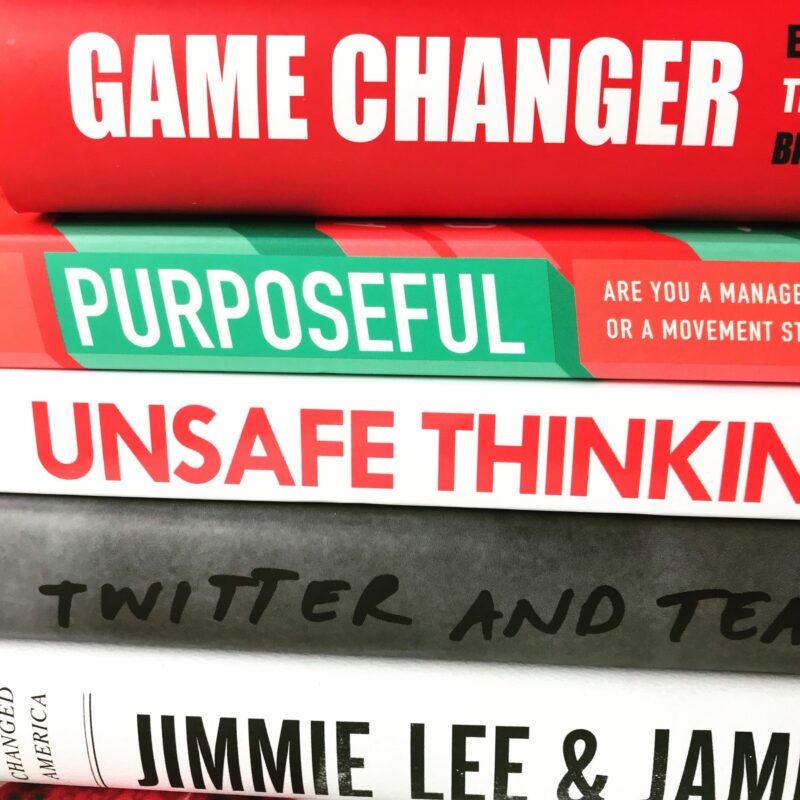I set myself a challenge at the start of the year to read a book a week – and it means I’ve got a few recommendations for those looking for a good campaigning read as they head off on holiday.
If you’re looking to dive into the lessons from successful movements of the past – I finally got around to reading ‘Bury the Chains’, which is one of the most comprehensive accounts of the abolitionist movement. It’s an absorbing read, and full of examples of how those campaigning for an end to the transatlantic slave trade use approaches and tactics that wouldn’t look out of place today.
Similarly, I really enjoyed William P Jones, March on Washington – Jobs, Freedom, and the Forgotten History of Civil Rights, for a broader look at the work that went into bringing the march together where Martin Luther King gave his ‘I Have A Dream Speech’.
If you want to understand how technology is shaping campaigning – the last 6 months have been full of stories about Facebook, data and Cambridge Analytica. So I really enjoyed ‘The People Vs Tech: How the internet is killing democracy (and how we save it)’ in which Jamie Bartlett exploration of how technology is changing democracy. It’s a quick and accessible read which isn’t full of tech-optimism, but also doesn’t leave you wanting to delete every social media account you have.
While Zeynep Tufekci’s ‘Twitter and Tear Gas: The Power and Fragility of Networked Protest’ is the best book I’ve read that explores the limits of social media when it comes to securing change. More here.
If you’re looking for some challenge on the approaches you’re taking – Then I can’t recommend ‘Where Good Ideas Come From – The Seven Patterns of Innovation’ enough. Steven Johnson has written a really interesting book drawing on the lessons from innovation across history and providing insight and tool about how to do that. I wrote more about it in a post here. I’d also add ‘Unsafe Thinking’ by Jonah Sachs to the list. More on his ideas here.
If you’re looking to be a better leader – I really enjoyed ‘The Culture Code’ by Daniel Coyle, as a primer to all the steps we can take as leaders to help team flourish, if you’re managing a team at work, or working with a team of volunteers then it’s got lots of principles you can draw from. I also found Jennifer Dulski, the former CEO of Change.org, Purposeful, a helpful read on how to be a leader in a campaigning organisation.
One of the topics I’ve been really thinking about this year is privilege in leadership, and what my role is a white straight man in helping to be a better ally. I found ‘Win Win: When Business Works for Women, It Works for Everyone’ by Joanne Lipman, a really good read for thinking about what more I can do in the office, although I prefer the books US title That’s What She Said: What Men Need to Know (and Women Need to Tell Them) about Working Together.
If you’re looking for the trend that will impact campaigning the most in the next decade– my pick of the bunch so far this year is ‘New Power: How It’s Changing The 21st Century – And Why You Need To Know’ by Jeremy Heimans and Henry Timms. It’s a book that builds on this brilliant HBR article and looks at how the nature of power is changing today, and what that means for influencers and institutions. Heimans and Timms explore how many are already harnessing New Power – if you’re looking for an accessible read with lots of practical thinking about how to succeed as a campaigner in the 21st century then it comes highly recommended.
If you’re trying to make sense of the UK today – then I’d recommend having a read of Joe Hayman’s ‘British Journey’. Hayman is a former special adviser who spent 3 months after Brexit travelling around the UK talking to people about what was behind the vote to leave. The result is a really good read on views far outside the ‘London bubble’. I’d add Ian Bremmer’s ‘Us vs Them – the failure of globalism’ if you’re looking to complement it with some more analysis of the forces driving the rise of populism.
I’m looking for recommendations for what to read over the rest of the year – so please do add thoughts to the comments below. I’m very conscious of the 12 books I’ve recommended only a quarter are by women authors, so that’s certainly something I want to address in the second half of the year.
